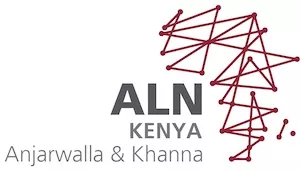- in Asia
- within Technology and International Law topic(s)
- with readers working within the Metals & Mining and Utilities industries
2020 was a year like none other. To date, most if not all economies are still reeling from the impact of COVID-19 – a pandemic that saw millions of people out of jobs, many struggling to pay their bills and children across the world, out of school. Businesses are yet to recover from the economic shocks caused by the pandemic. Speculatively, it will take more than two financial years for business to fully recover the world over. This will also vary depending on how developed a country is.
The Government of Kenya, in a bid to cushion citizens from the adverse impact of the economy nose-dive caused by the pandemic, introduced various tax measures in April 2020. According to the VAT Order issued by the CS National Treasury and Planning, VAT was reduced from 16% to 14%. Additionally, Parliament promulgated the Tax Laws (Amendment) Act, 2020 pursuant to which a raft of tax changes were introduced, such as: corporation tax rate reduction from 30% to 25% for resident companies; and, Pay As You Earn (PAYE) changes such as expansion of tax bands and reduction of the highest individual tax band rates from 30% to 25%. Additionally, individuals earning less than KES 24,000 (approx. USD 225) a month were exempted from income taxes.
Granted, these measures provided relief for businesses that struggled to keep afloat as the economy slumped due to various factors such as introduction of travel restrictions, curfews among other measures aimed at containing the spread of the pandemic. For employees, the PAYE reduction provided a soft landing especially in circumstances coupled with salary cuts, unpaid leave, and job losses.
Government coffers were not spared by the effects of the pandemic. Revenue sources thin amid swelling expenditure and an expensive pandemic. Recently, the National Treasury announced that it was beginning the year 2021 with a tax deficit of KES 125 billion (approx. USD 1.1 billion). To put this in context, the Kenya Revenue Authority (the KRA) is expected to collect approximately KES 130 billion (approx. USD 1.2 billion) every month in order to meet its tax collection targets. The KRA collected on average KES 105 billion (approx. USD 954,000) in the first five months of the financial year commencing July 2020, leaving a deficit of KES 125 billion (approx. USD 1.1 billion) by November 2020. This means that 2021 is not going to be business as usual in matters tax collection despite the biting economy. As a result of the revenue shortfall, the Government determined that it would cut back on the Covid-19 tax concessions that had been introduced in April 2020, on the basis that they had been granted to Kenyan taxpayers as temporary measures for the year 2020 and they would be reviewed as soon as economic activity picked up.
On this basis, in December 2020 the Government once more changed the law with the effect that commencing January 2021, the COVID-19 tax measures relating to VAT, corporation tax and PAYE were repealed, and the tax rates reverted to the pre-COVID rates albeit with slight changes in PAYE tax bands. Despite businesses and individuals still grappling with uncertainties brought about by COVID -19, new taxes were introduced such as Digital Services Tax (DST), a tax charged on income earned from the provision of services through electronic means known as a digital marketplace, and minimum tax.
Notably, instalment tax, minimum tax and DST are all currently overlapping income tax regimes and this could potentially pose compliance and administrative challenges to business. Both minimum tax and DST are premised on the principle of taxing sales over profit (contrary to the general rule of taxation). This means that companies and individuals would have to pay tax even when making small profits or even when in losses, which is largely the case for most start-ups as well as persons engaging in online services, especially gig workers. Companies in a loss position occasioned by various reasons including huge capital investments such as telecommunication companies, companies investing in energy, will also be subject to minimum tax. Introducing minimum tax to businesses in a struggling economic reality could discourage companies from making investments and put others out of business.
Conclusion
Businesses are optimistic that this year will bring better prospects amid harsh economic realities, the introduction of new taxes, an aggressive KRA seeking to bridge its tax shortfall and a general election around the corner in 2022. All is not gloomy for business since, beginning January 2021, the Government through the KRA rolled out the Voluntary Disclosure Program for noncompliant taxpayers to declare unpaid taxes without facing any penalties and avoid potential criminal liability and prosecution and obtain a waiver of penalties and interest. The program will run until 2023 and relates to tax liability for five years before 1 July 2020 (1 July 2015 – 30 June 2020). The waiver will be 100% if the disclosure is made in 2021, 50% in 2022 and 25% in 2023.
The content of this article is intended to provide a general guide to the subject matter. Specialist advice should be sought about your specific circumstances.



